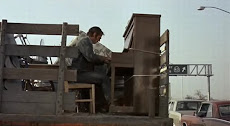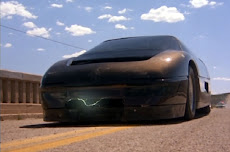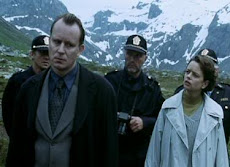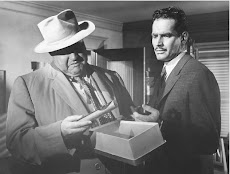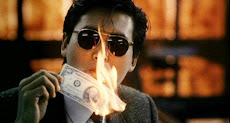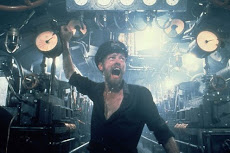Drawing on my Blade Runner post a few weeks back, one reason the Special Edition Uber Box Set release is cherished by fans is because it includes every popular edition of the film as well as the "Workprint," which was seen only by some very lucky theater-goers (and those who bought a bootleg off one of them) until that point. Even though the DVD with the original Domestic Cut includes a short introduction by Ridley Scott officially disowning the version and saying it's included solely for the fans, at least he respects the fans enough to include it.
Paging George Lucas?
This weekend I had the almost-pleasure to view The Empire Strikes Back on DVD. Never mind that this DVD box set came out in 2004, this was my first viewing. The results give me pause. This is not news, but Lucasfilm tweaked (or, changed) Empire and its fellow originals to fix continuity issues with the new Star Wars trilogy. Again, this is not news-- see the full story of changes here.
Basically, Lucasfilm's Empire Strikes Back now includes a re-do of Darth Vader's communication with Emperor Palpatine from his flagship, Executor via hologram. They used Ian McDiarmid (the actor who played Palpatine in Return of the Jedi and the three prequels) and changed the dialogue:
Paging George Lucas?
This weekend I had the almost-pleasure to view The Empire Strikes Back on DVD. Never mind that this DVD box set came out in 2004, this was my first viewing. The results give me pause. This is not news, but Lucasfilm tweaked (or, changed) Empire and its fellow originals to fix continuity issues with the new Star Wars trilogy. Again, this is not news-- see the full story of changes here.
Basically, Lucasfilm's Empire Strikes Back now includes a re-do of Darth Vader's communication with Emperor Palpatine from his flagship, Executor via hologram. They used Ian McDiarmid (the actor who played Palpatine in Return of the Jedi and the three prequels) and changed the dialogue:
This I could handle even though it made me think of the three newer movies, which I can't stand. Far worse--unforgivable, I daresay--is the re-dubbing of Boba Fett's voice. This was also done to bring the entire trilogy in line with Attack of the Clones (Episode 2), which I still haven't actually seen (and likely will not). Anyway, Fett used to sound mean and gruff, and now he sounds like a drunken Cockney tough guy-- oh, all right, he sounds like Temuera Morrison, who played Jango Fett in Clones. Make that "drunken New Zealand tough guy."
I proudly own a Star Wars box set from around 1995, VHS tapes which include the original trilogy "Digitally mastered in THX." Sadly, it's pan-and-scan format, but aside from this and THX restoration it's exactly what the fans saw in 1977, 1980, and 1983, respectively. Does even the new (2006 / 2008) Star Wars box set-- the release of the original trilogy since 1995--treat the originals like the Blade Runner set? Alas, no. Look no further than the user comments on Amazon regarding the recent 2008 release to get the story.
As an aspiring esquire with very limited knowledge of copyright law who considered actually writing a law review article on the subject, I can say that Lucas is well within his rights to do whatever he wants with his trilogy, be it with the content or the release format. Nevertheless, I join legions of fans who are dismayed that with all of its money Lucasfilm refuses to prefectly restore the original trilogy, release it in anamorphic widescreen and, while they're at it, put it out on BluRay.
I can't speak for the law, but the public policy implications are ripe. This appears to be an issue of first impression. We've seen boatloads of "Director's Cuts" and "Special Editions" for over 20 years now (before the home video releases many films, including Fried Green Tomatoes, featured television premieres hyped with "scenes not seen in theaters"); we now have separate releases of "rated" and "unrated" films, some even combined to include both versions on one disc. The (original-)original Star Wars trilogy appears to be, for the moment, the lone victim of suppression.
Of course Lucas can't do anything about my VHS tapes or the old laserdiscs-- this isn't really suppression--he can simply refuse to heed fans' demands for perfection, which is well within his rights. I have a feeling, though, that there's a good argument here for abandonment. Lucas has altered his property, but the original is still there, in the beautiful form he gave fans over twenty years ago. Is there not an argument that this is, in fact, "Cultural Property?" It would be a new frontier; Cultural Property is currently limited to artifacts, monuments, and other artworks (think the Sphinx). This would place the originals in public domain and open the door for other users to get the negative, restore it to better-than-original glory, and make it available to the public.
All right, the capitalists (me included) may break out in hives at the thought, but it seems so, so perverse that I'm willing to make my stand in spite of all slippery slope arguments.
You don't want your kids growing up with Boba Fett from New Zealand, do you?



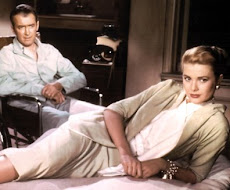_01.jpg)



